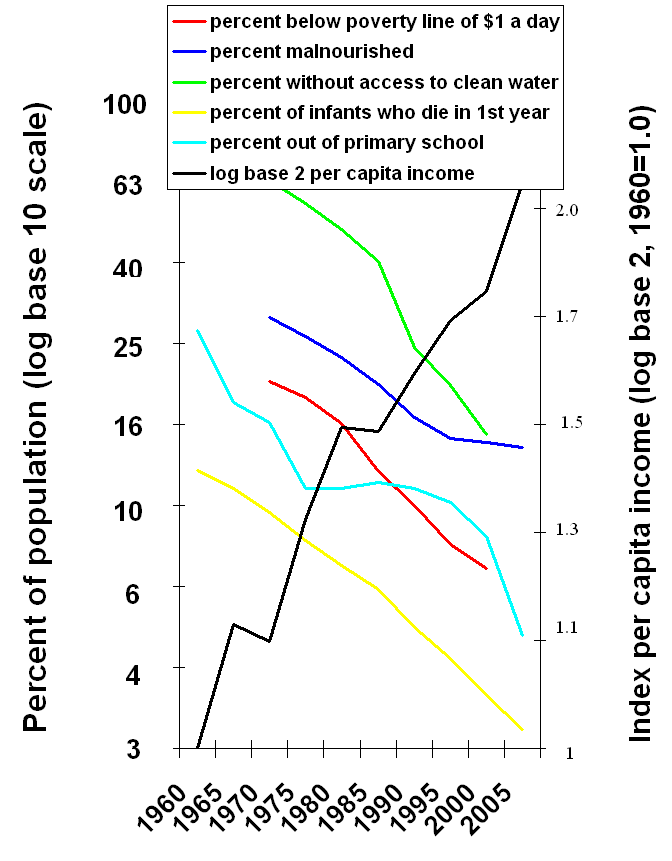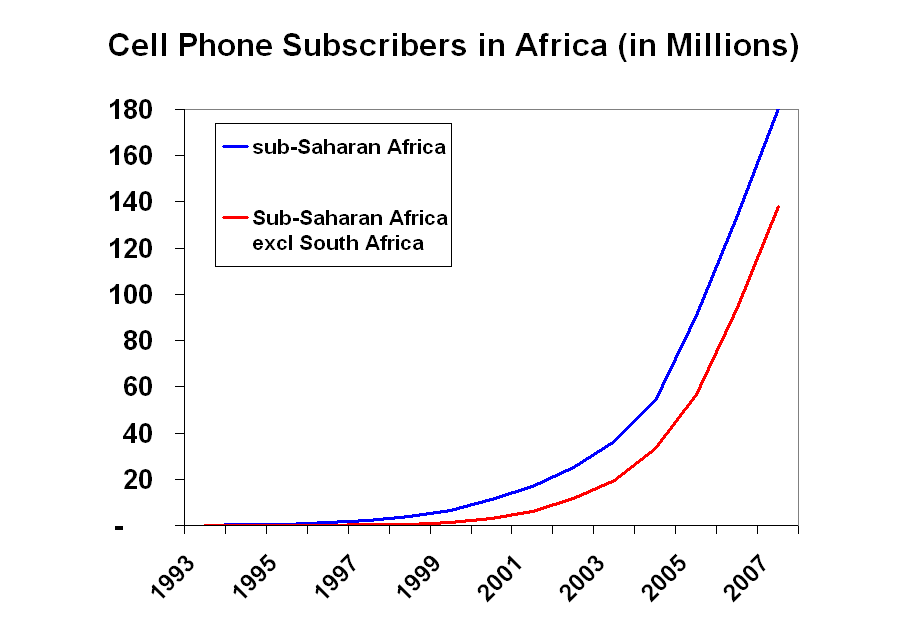When Will There Be Good News? Does it Help There Already Was Some?
In the midst of the general doom and gloom, fears about how the crisis will affect poor countries, and fierce criticism of markets, states, and aid agencies, perhaps it’s healthy to step back to the big picture, to recognize there has already been some very real good news. The graph below shows some overall statistics for the developing world:
This graph has a mixture of good news that all of the much-criticized triad of markets, states, and aid can take partial credit for. Markets obviously get at least some credit for the reduction in global poverty and increase of global average income. States supply public goods like education, water, and health, and there has been progress on all of these. Aid deserves some credit for successes in health, as already stressed in a previous blog post.
One group that doesn’t deserve much credit is “development experts,” because there is a terrible crisis of confidence in development economics now, where we all freely confess we don’t really know what to advise governments on how to speed up development.
Positive stories are also important to correct unbalanced stereotypes, like the one discussed a couple of days ago by June Arunga on this blog about the rich American woman who couldn’t believe Africans had cell phones. The figure below shows the huge cell phone boom in Africa (the world’s most rapidly growing cell phone market). This one is a success for resourceful African entrepreneurs, like Alieuh Conteh who started a cell phone business right in the middle of the civil war in the DR Congo, with makeshift cell phone towers made out of pieces of scrap metal welded together. He got millions of subscribers and eventually sold the company for a ten-figure sum.
Yes, there is a terrible crisis now, not to mention that all of these indicators are still deeply unsatisfactory, so we all keep criticizing and holding accountable the market, state, and aid actors who fall so woefully short. But let none of us forget how much development already happened over the last half-century, which may inspire us with hope that more step-by-step improvements in markets, states, and aid could make even more development possible.
 From Aid to Equality
From Aid to Equality


